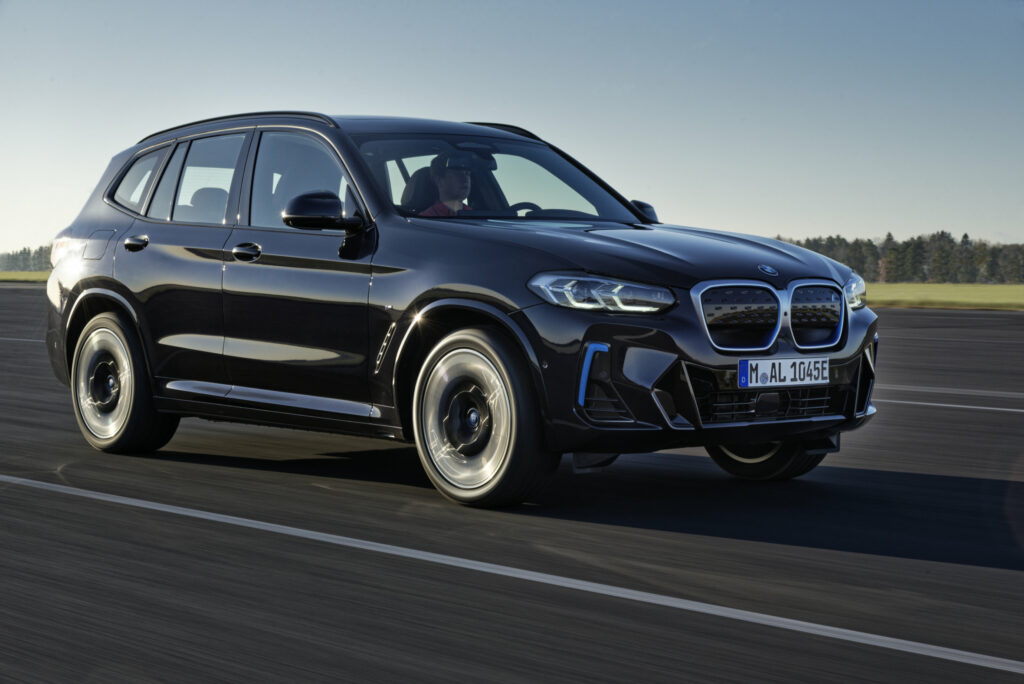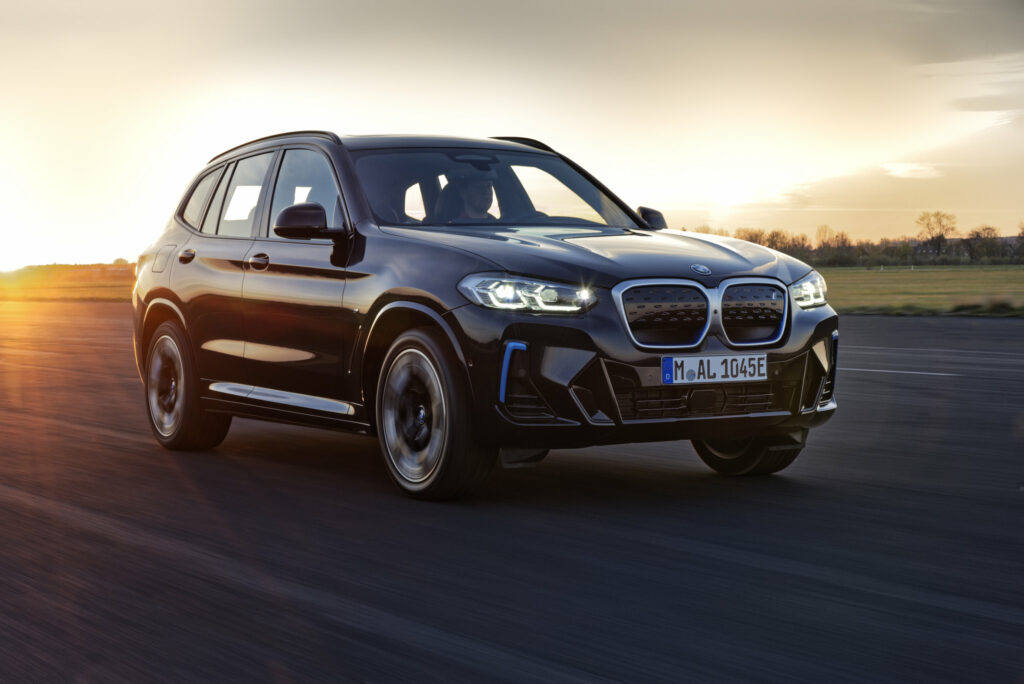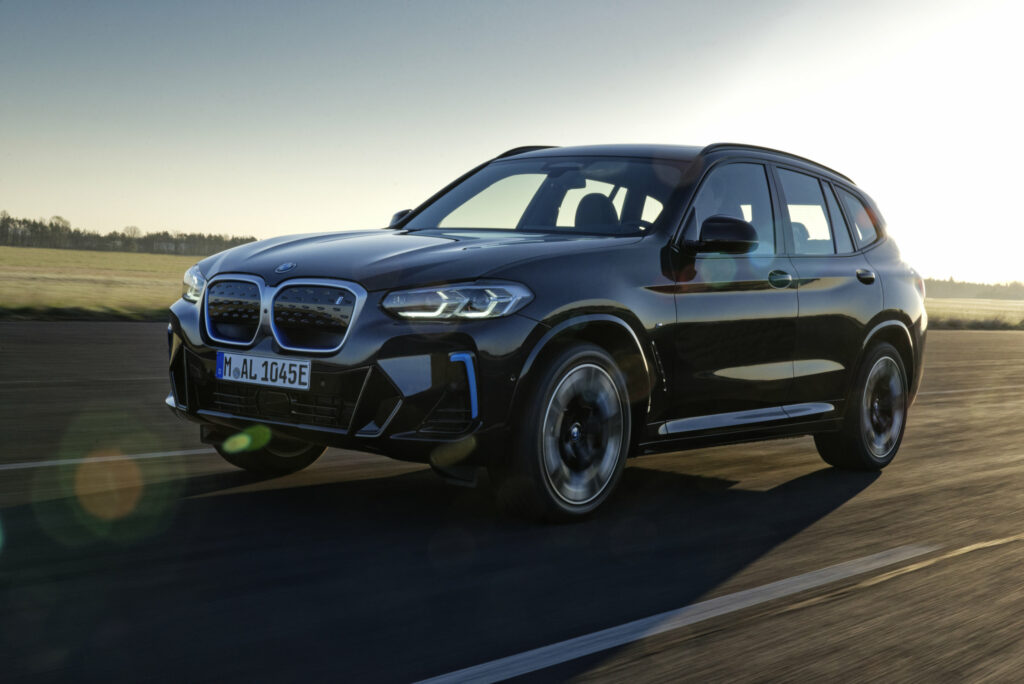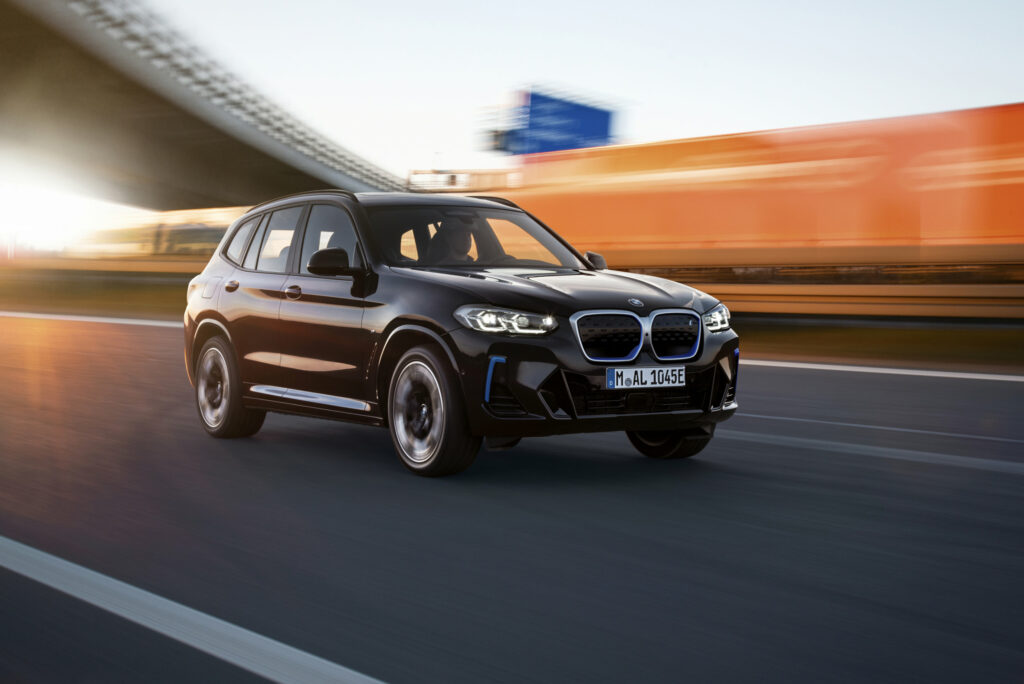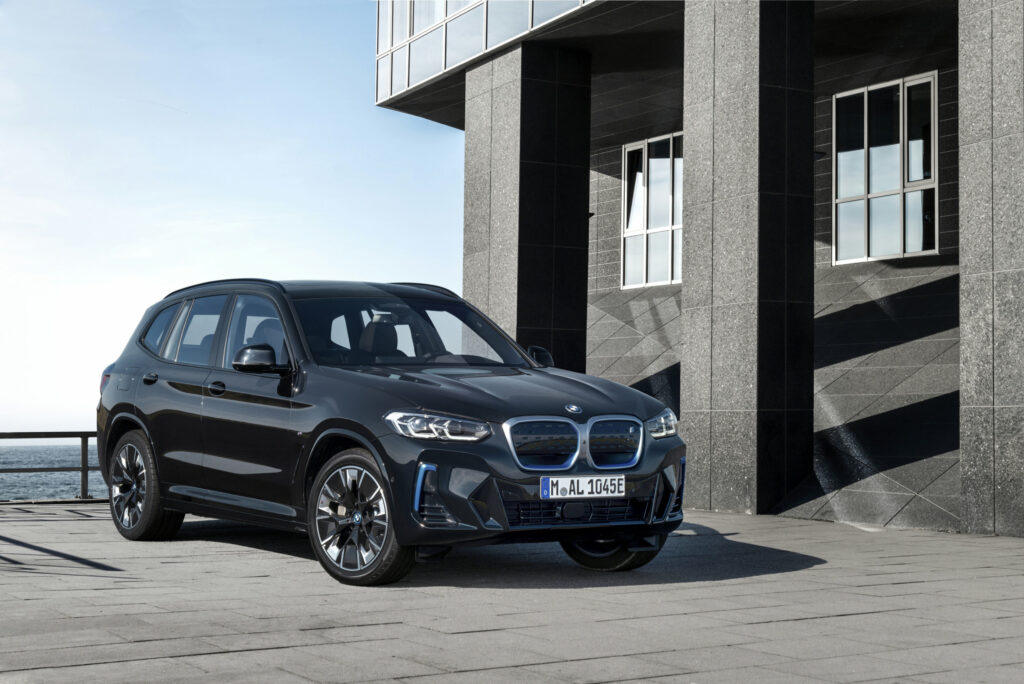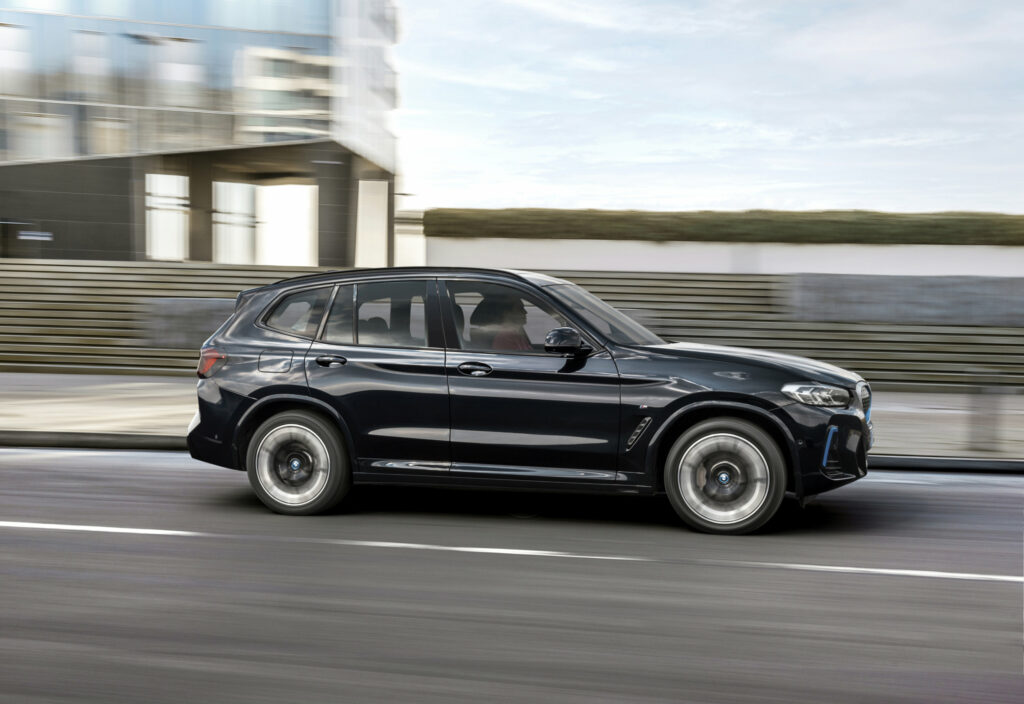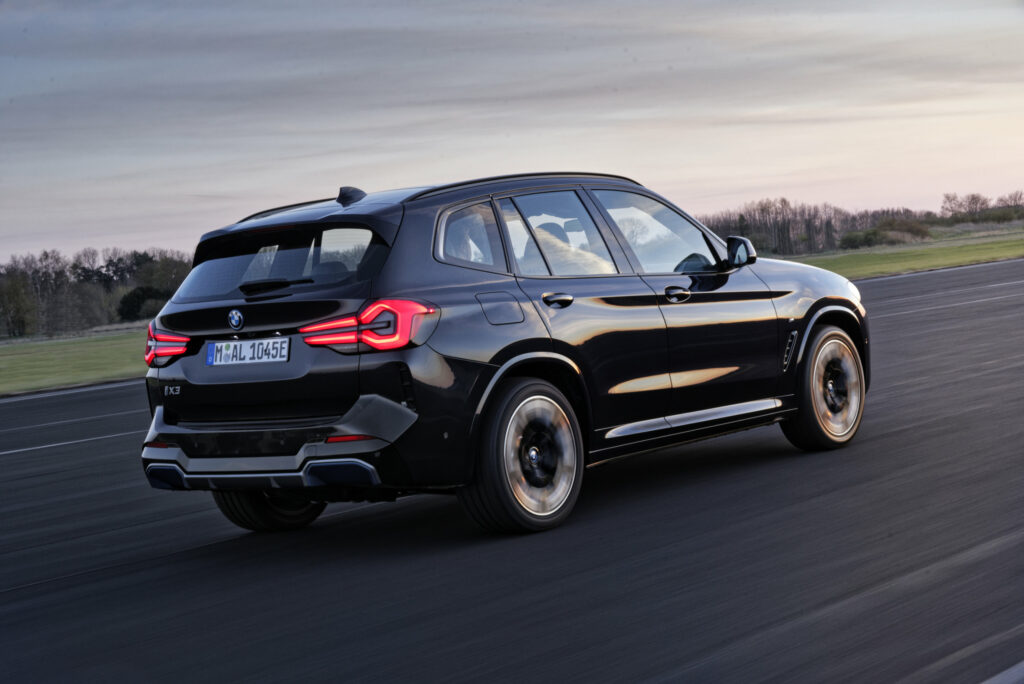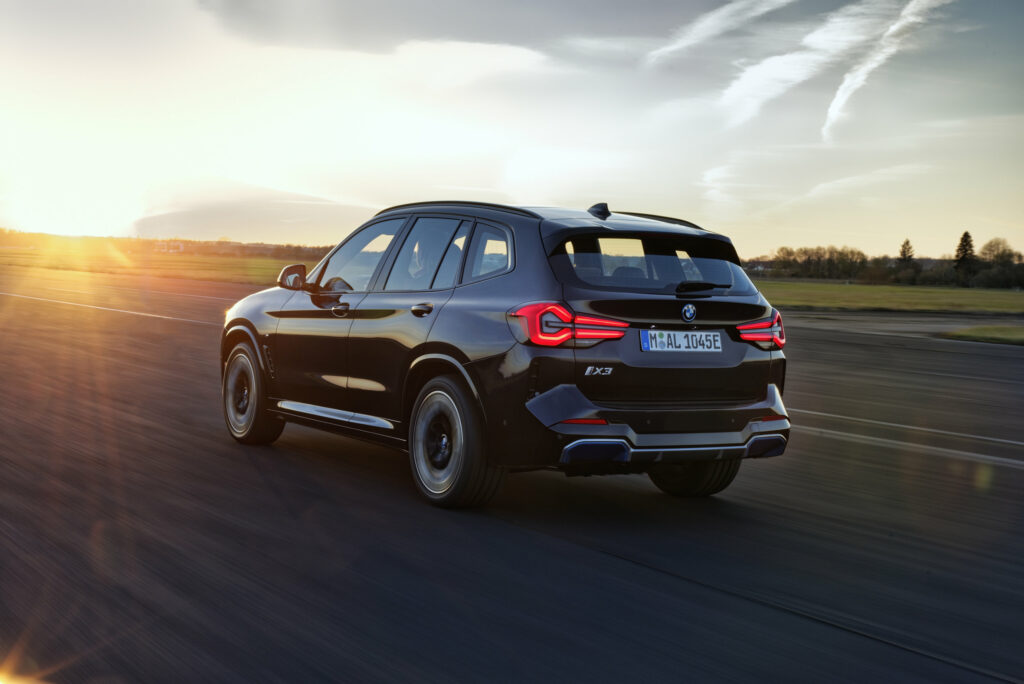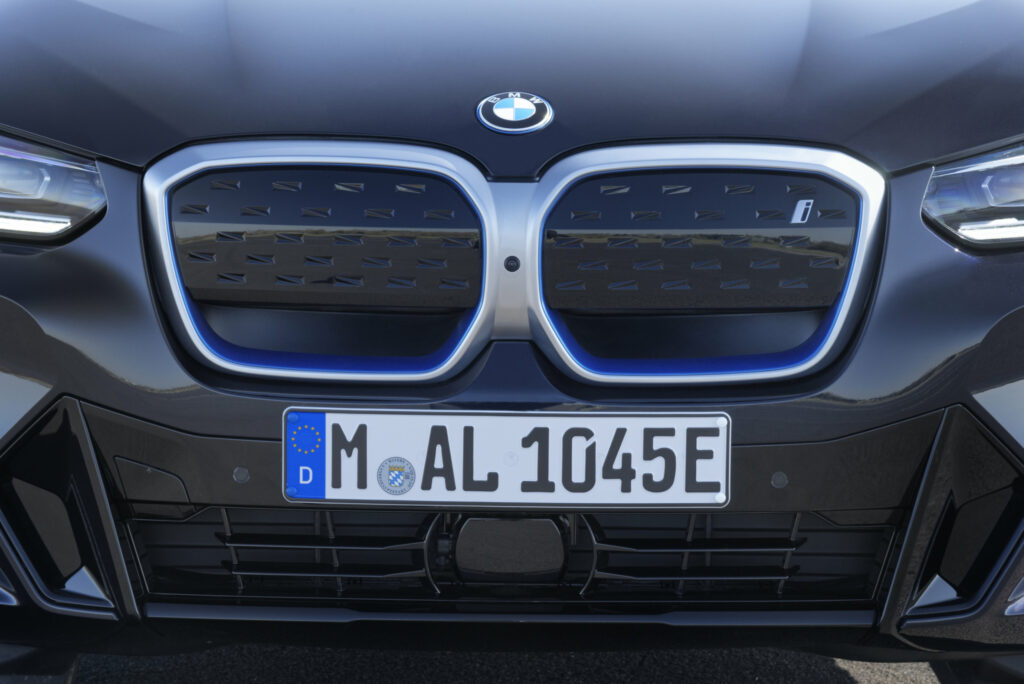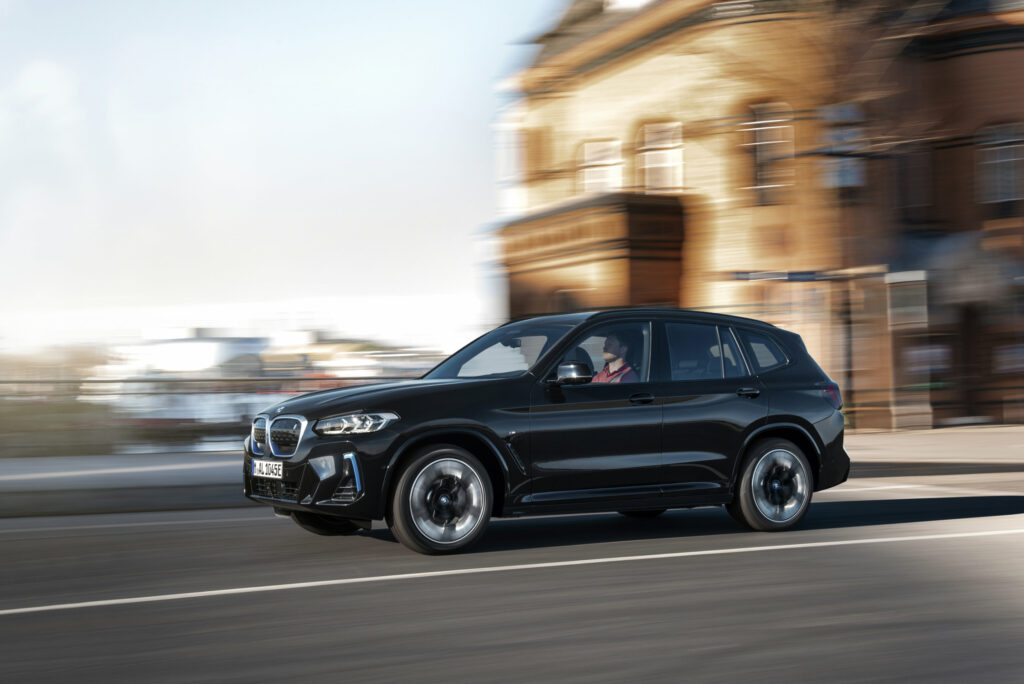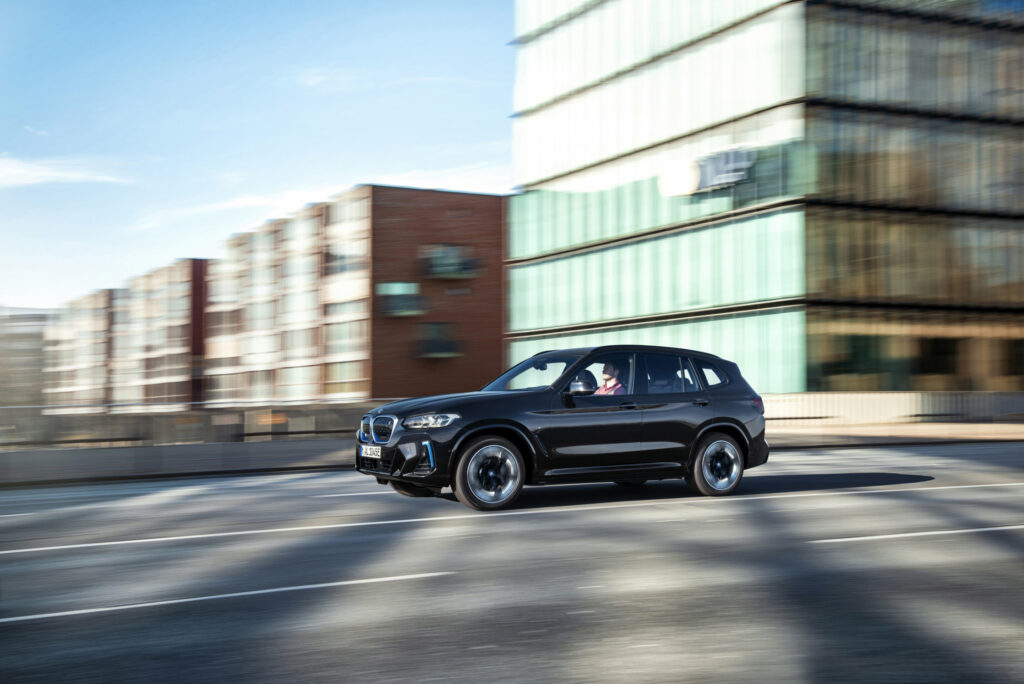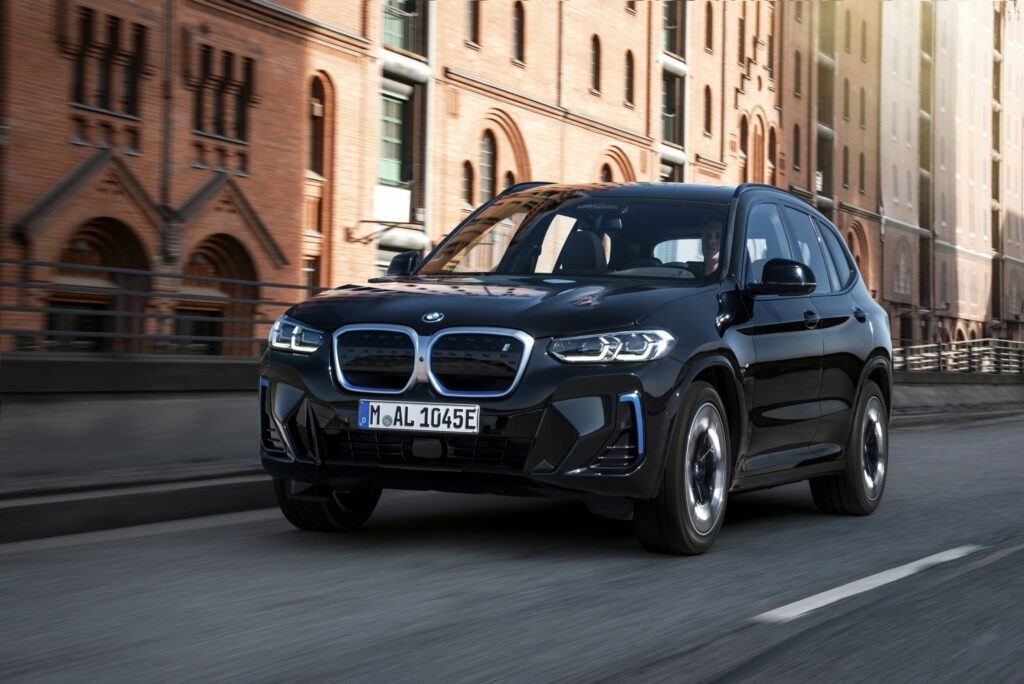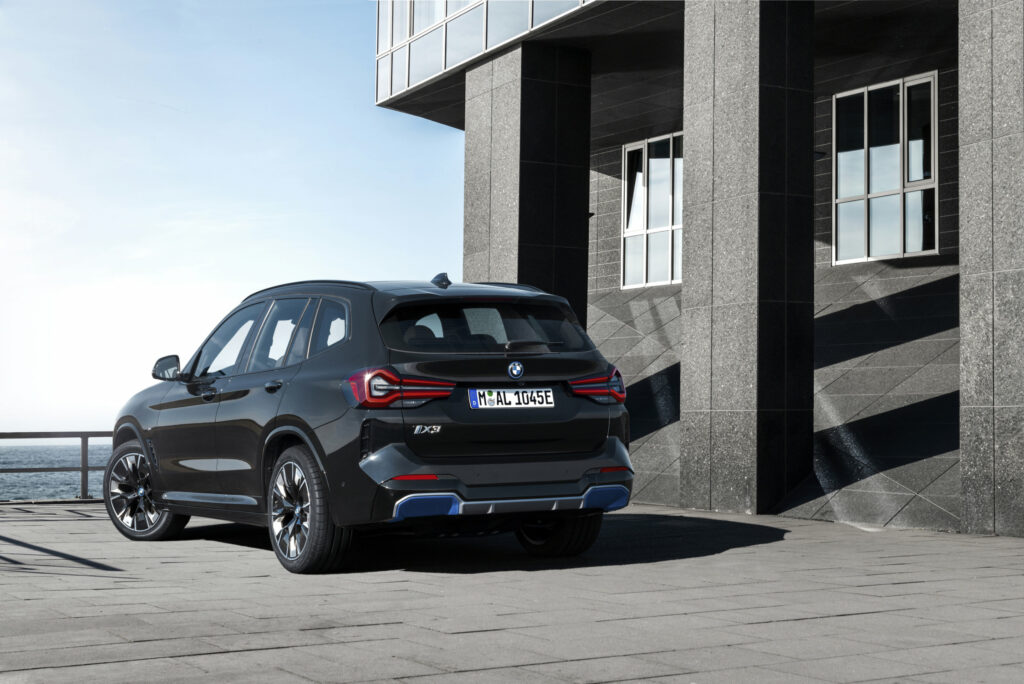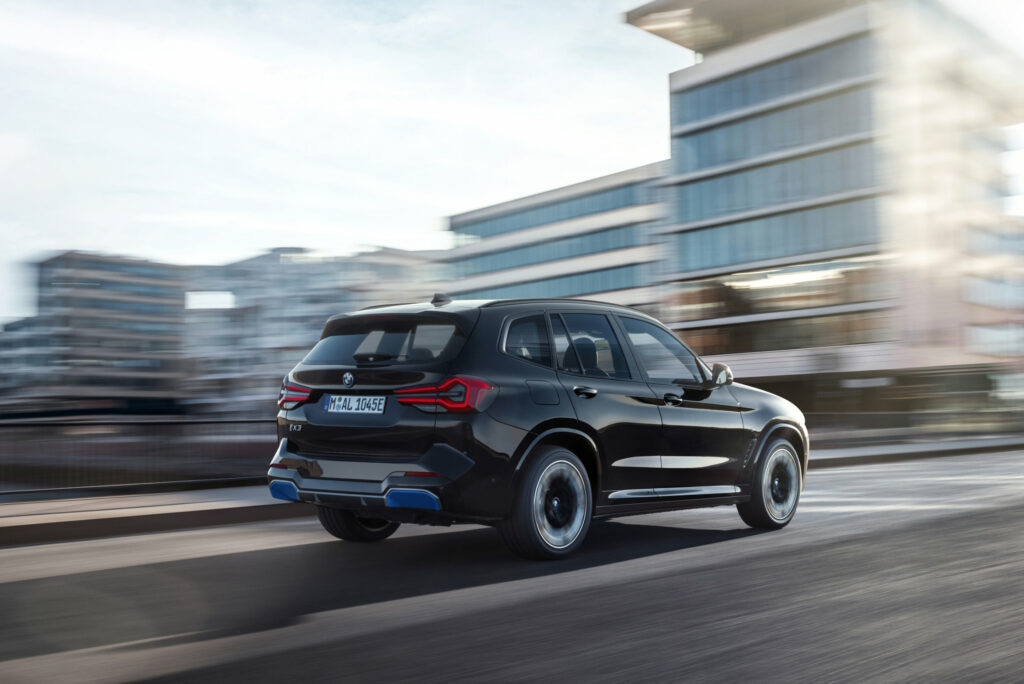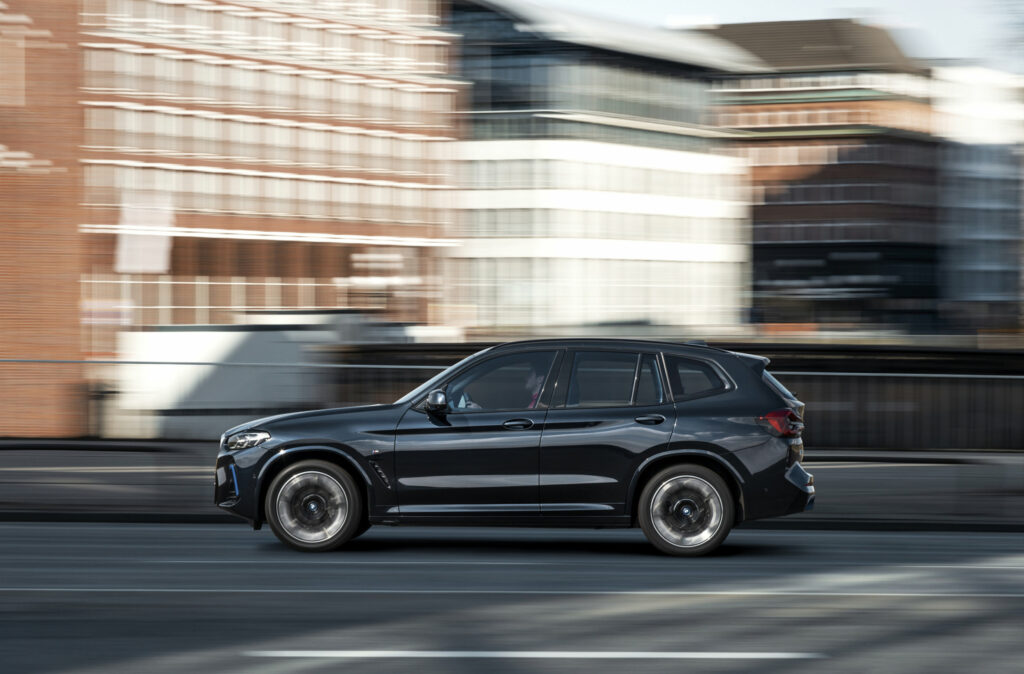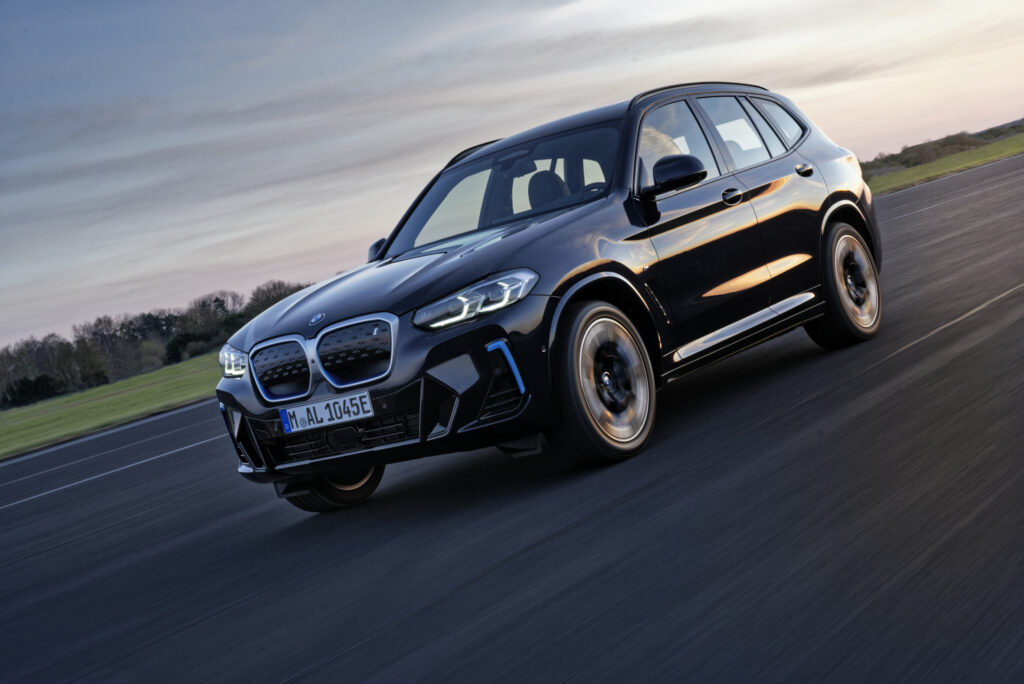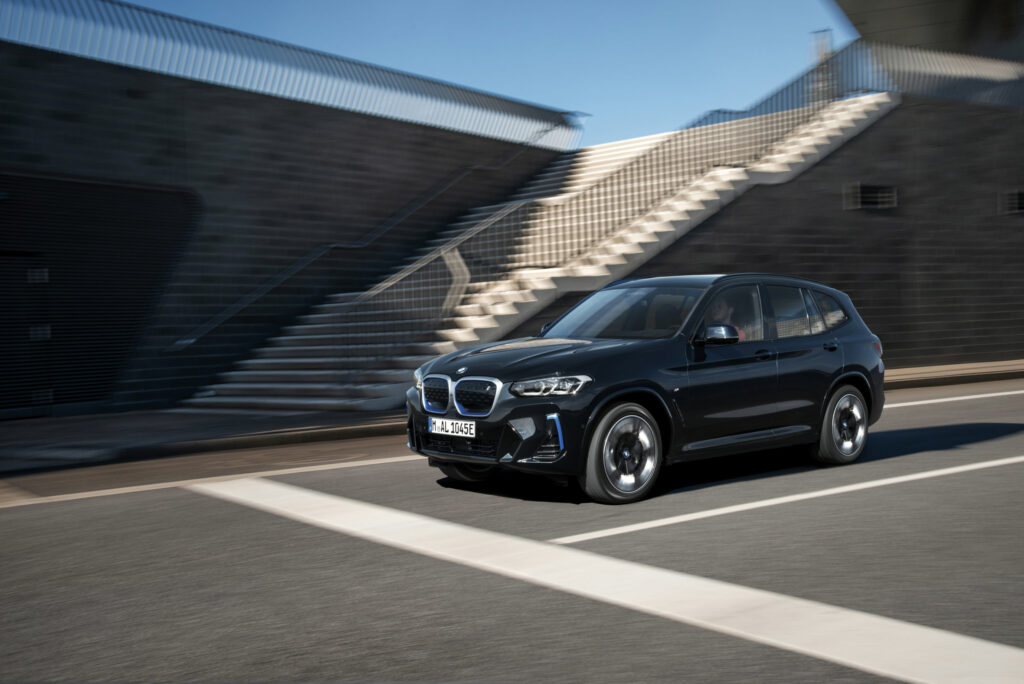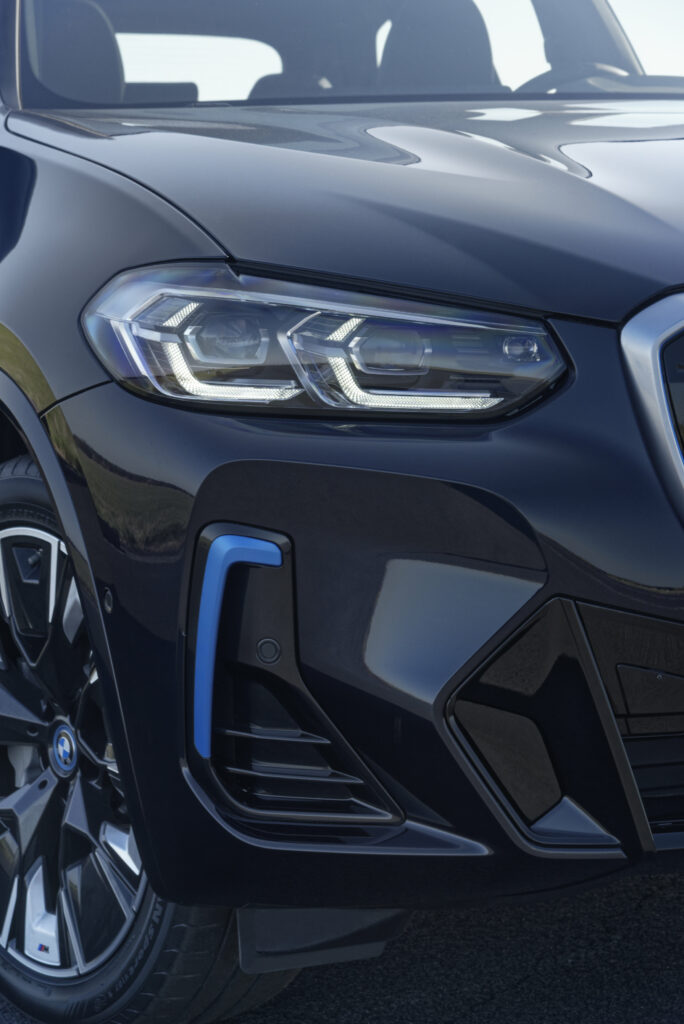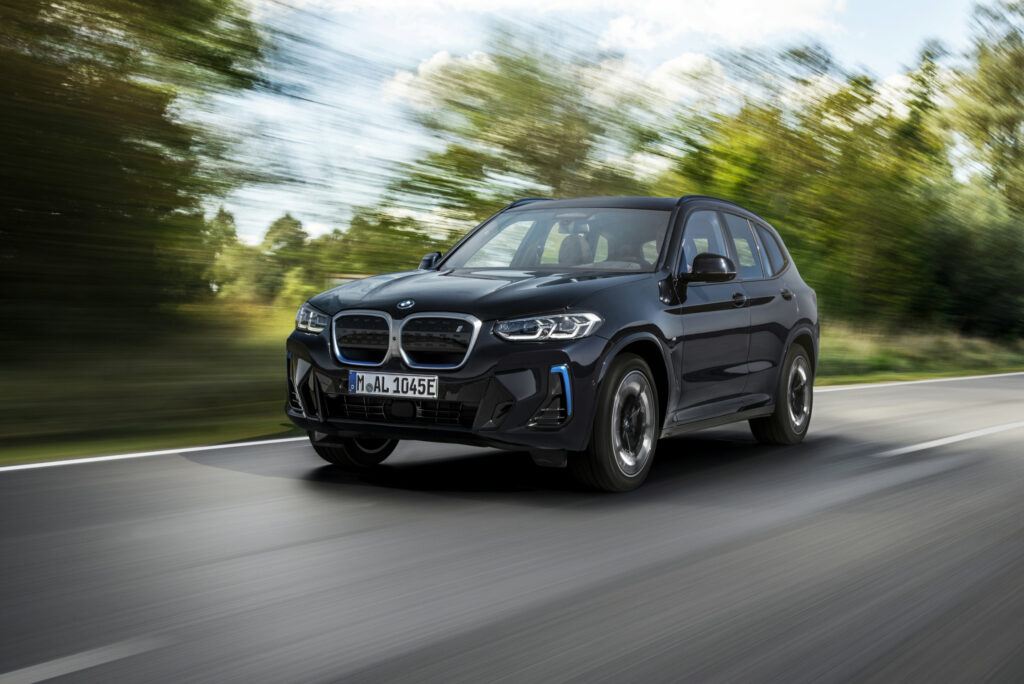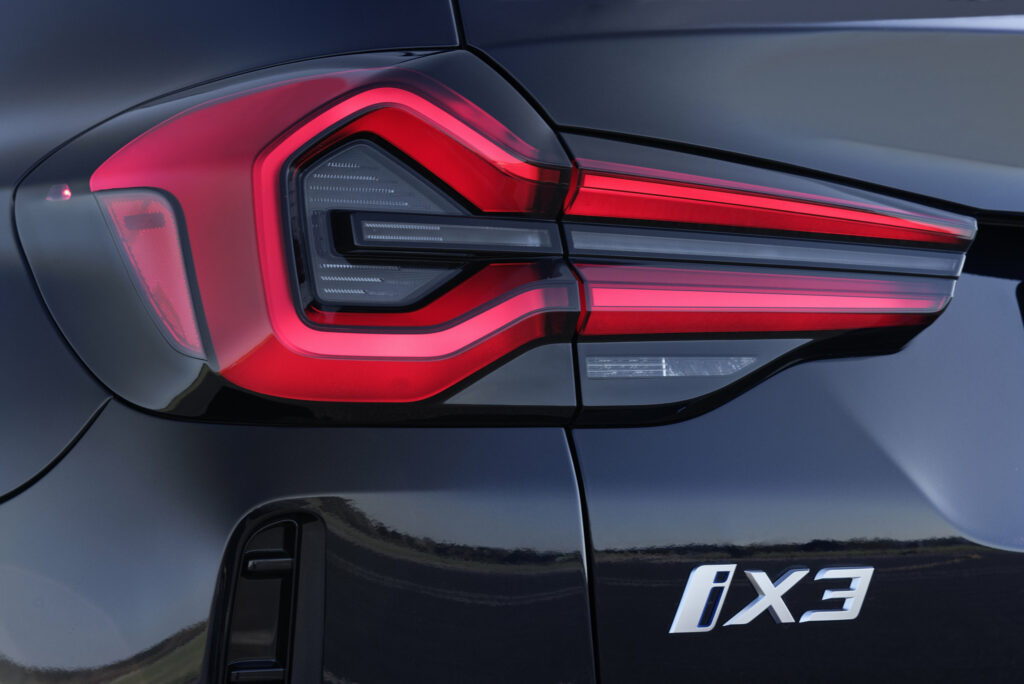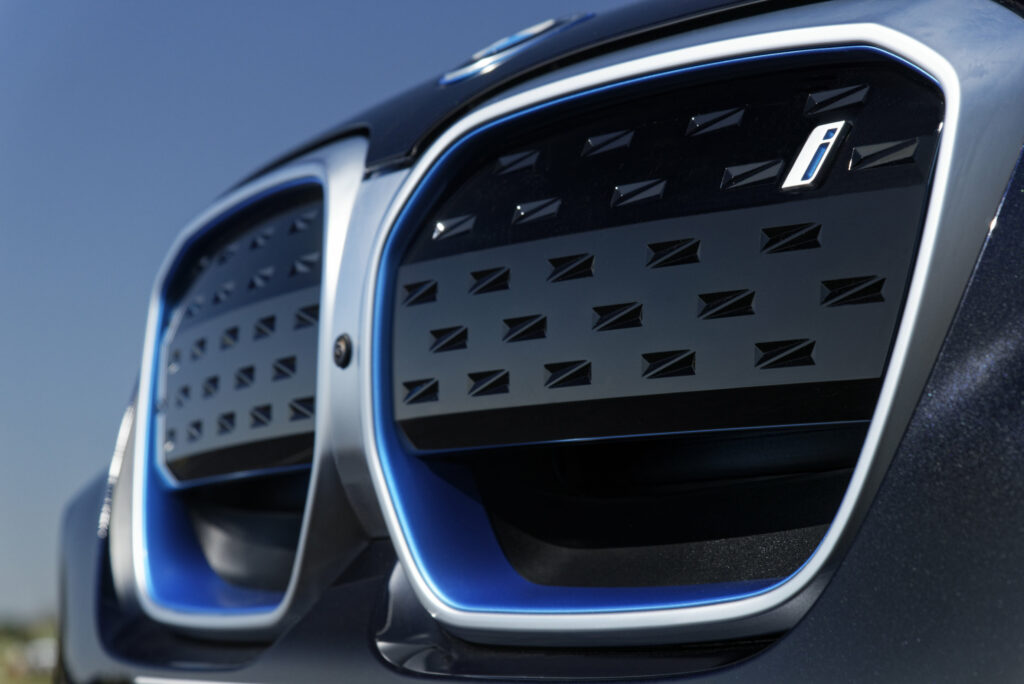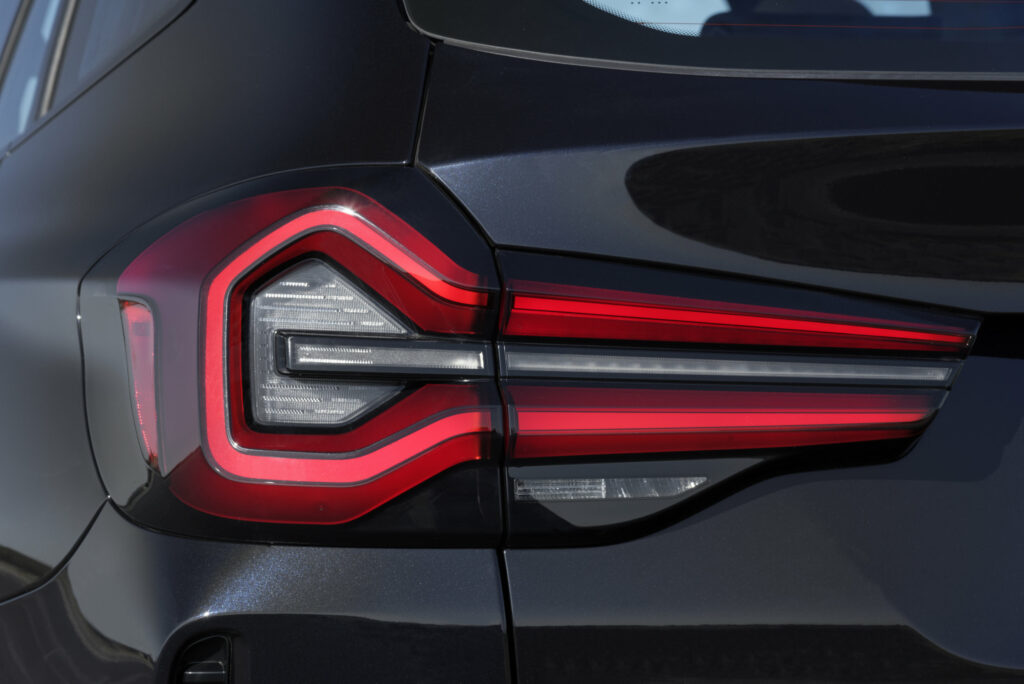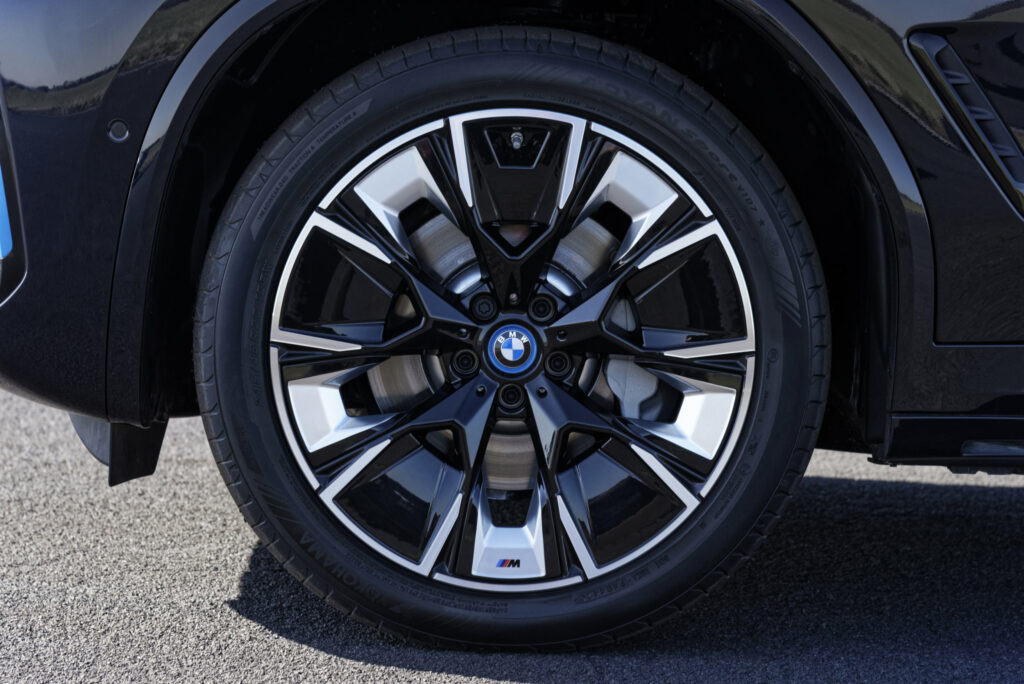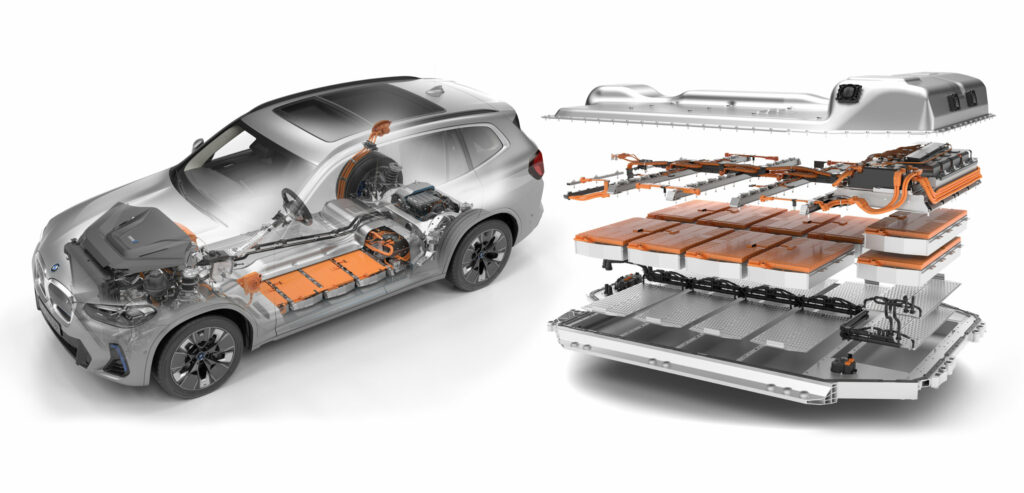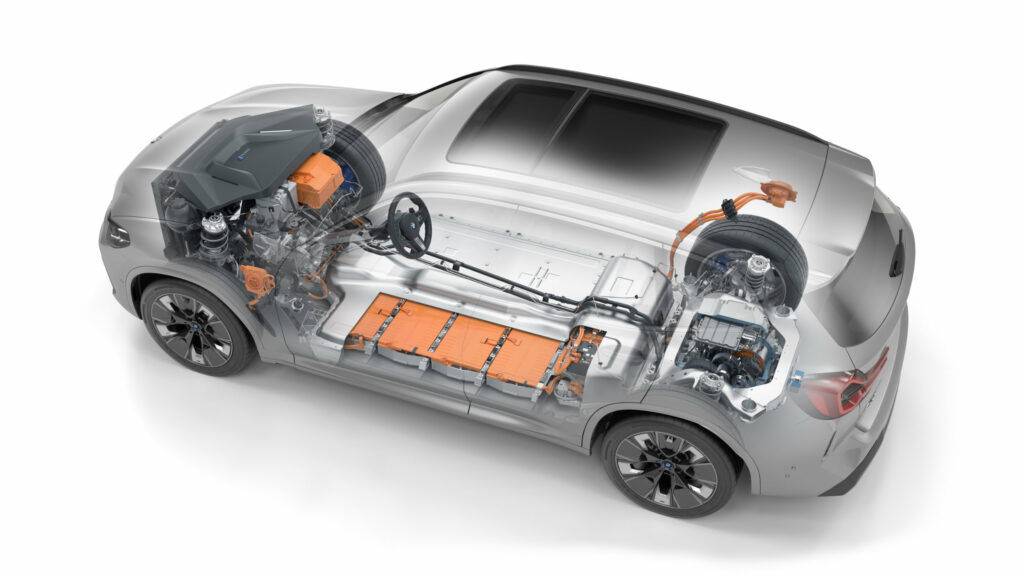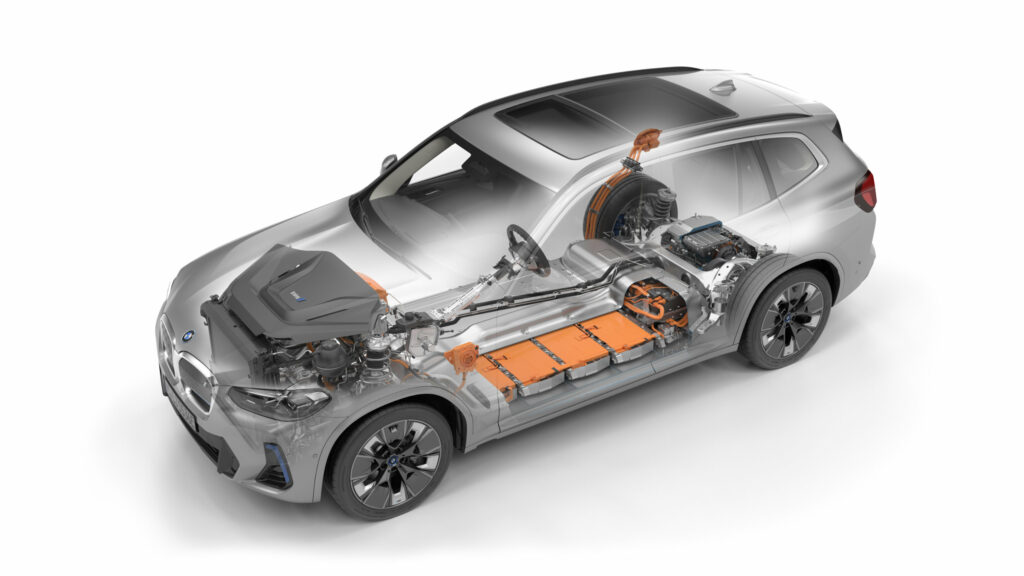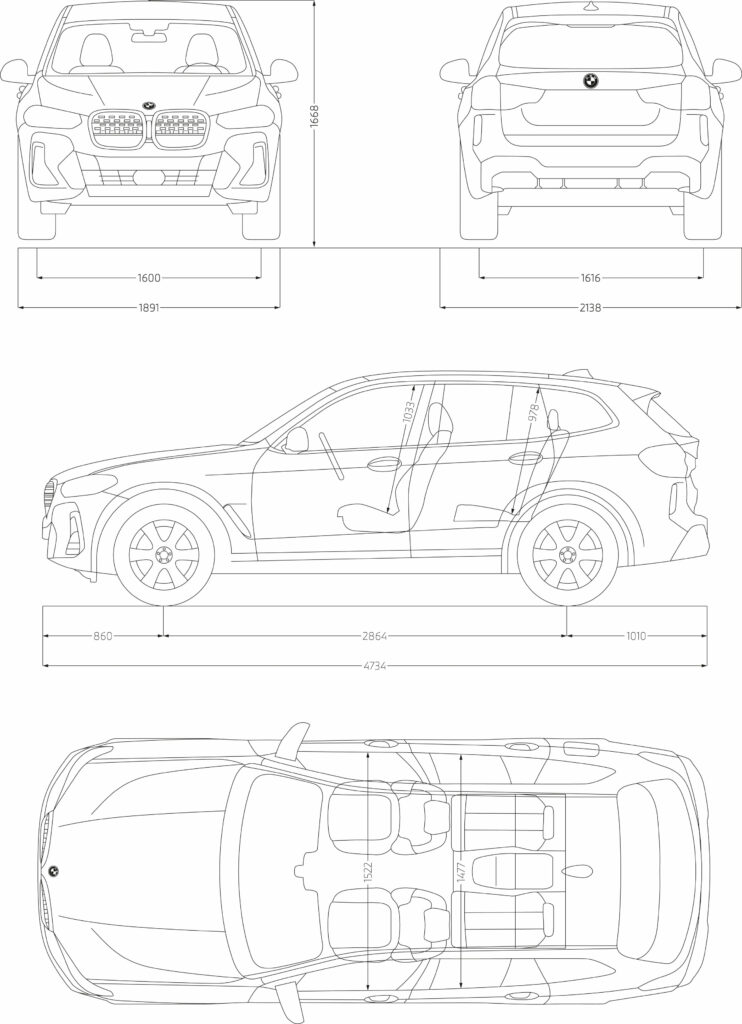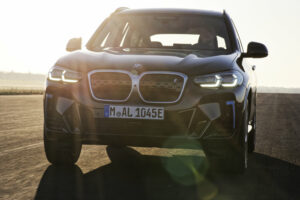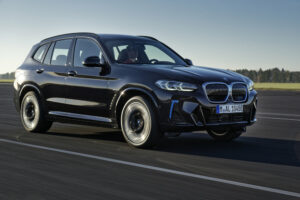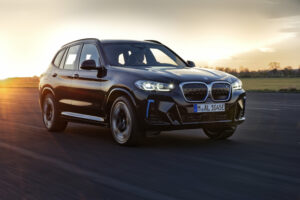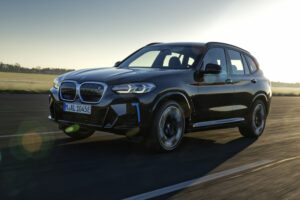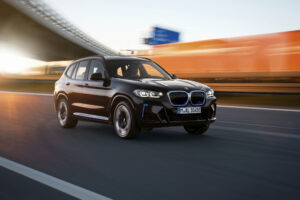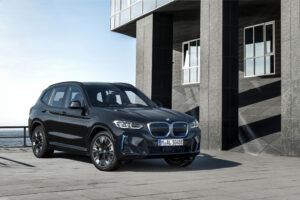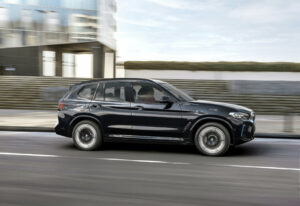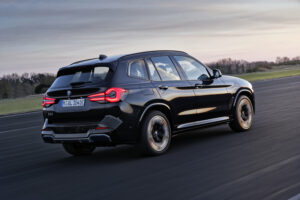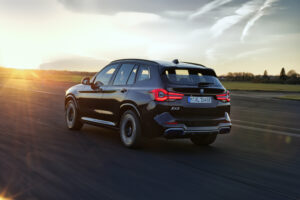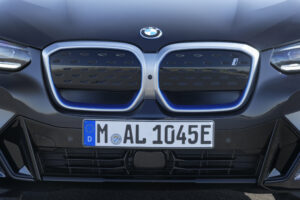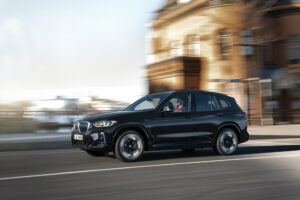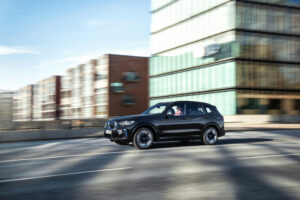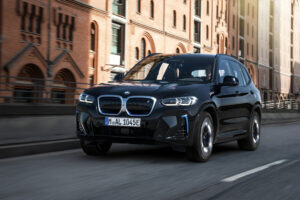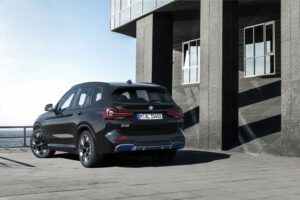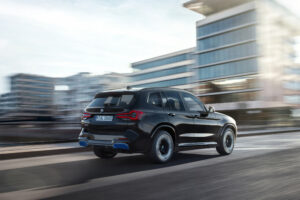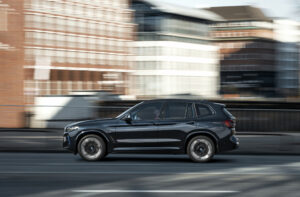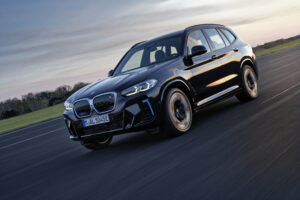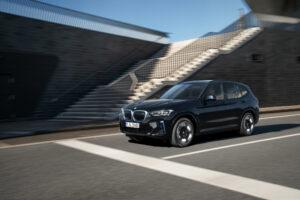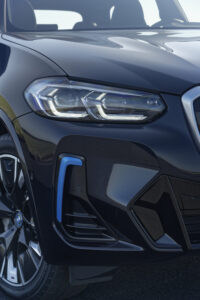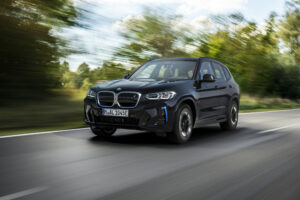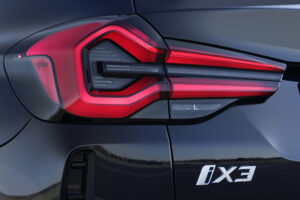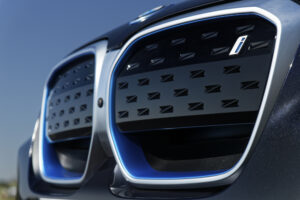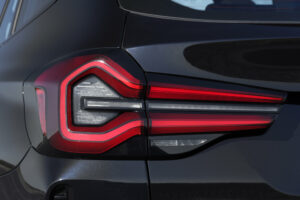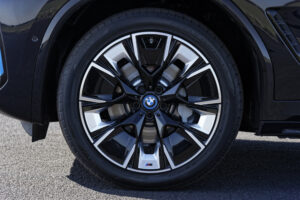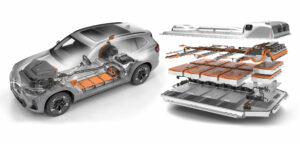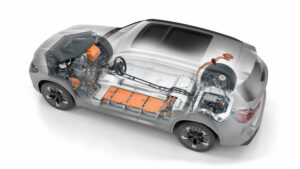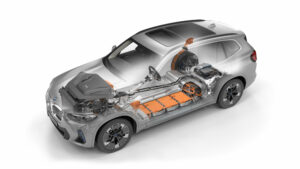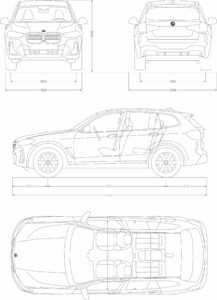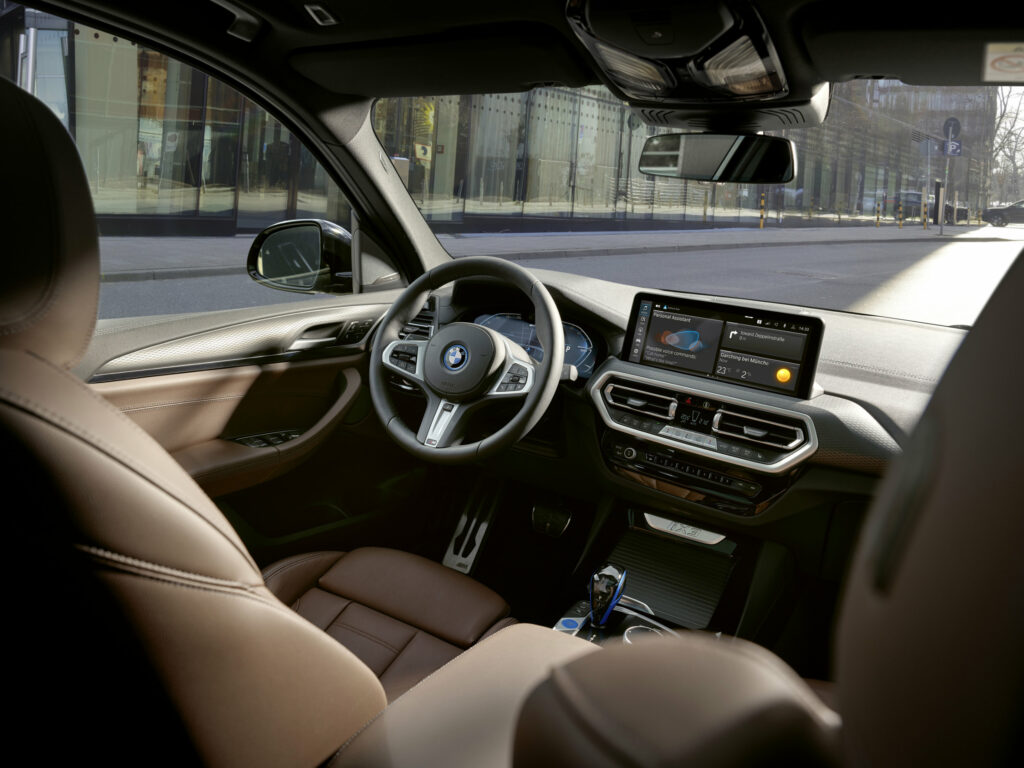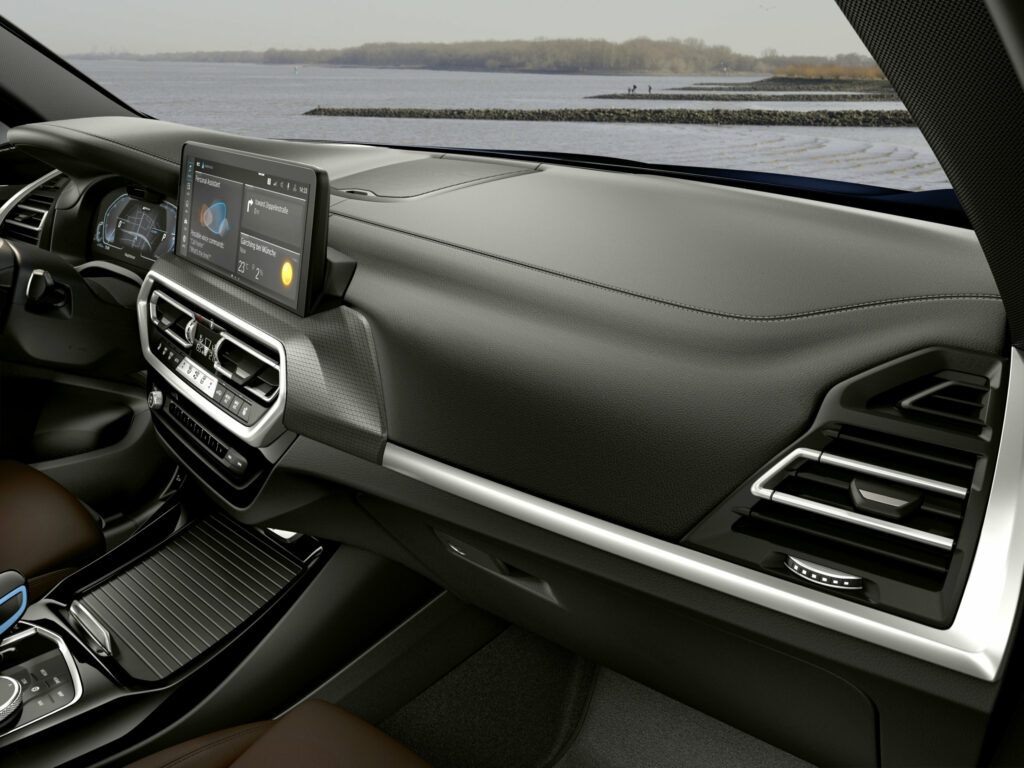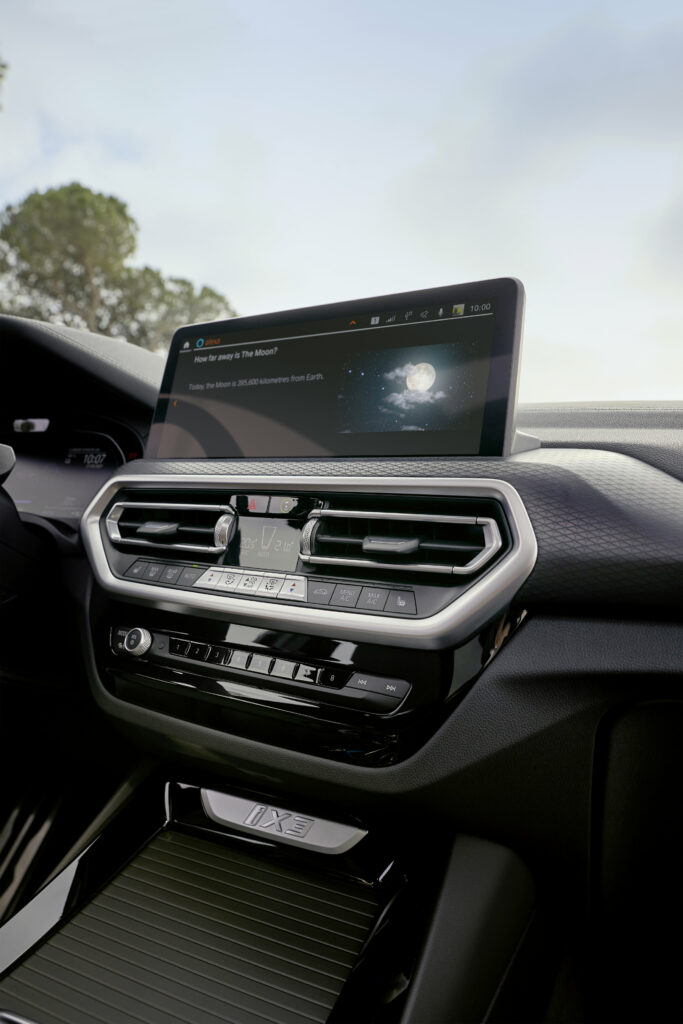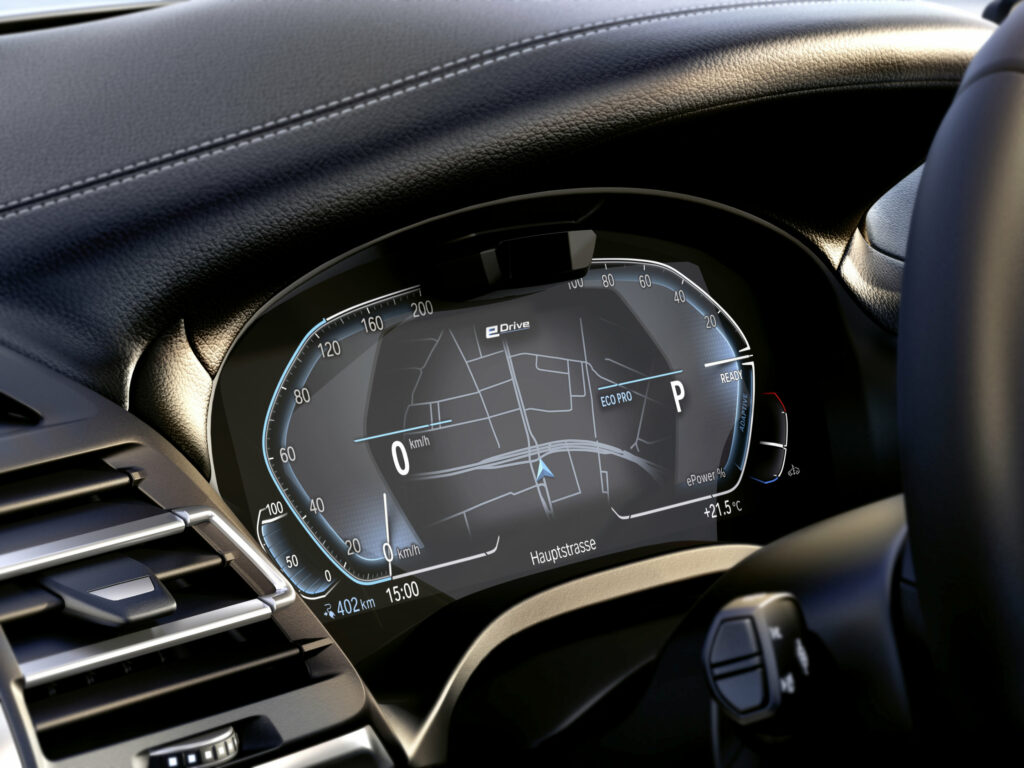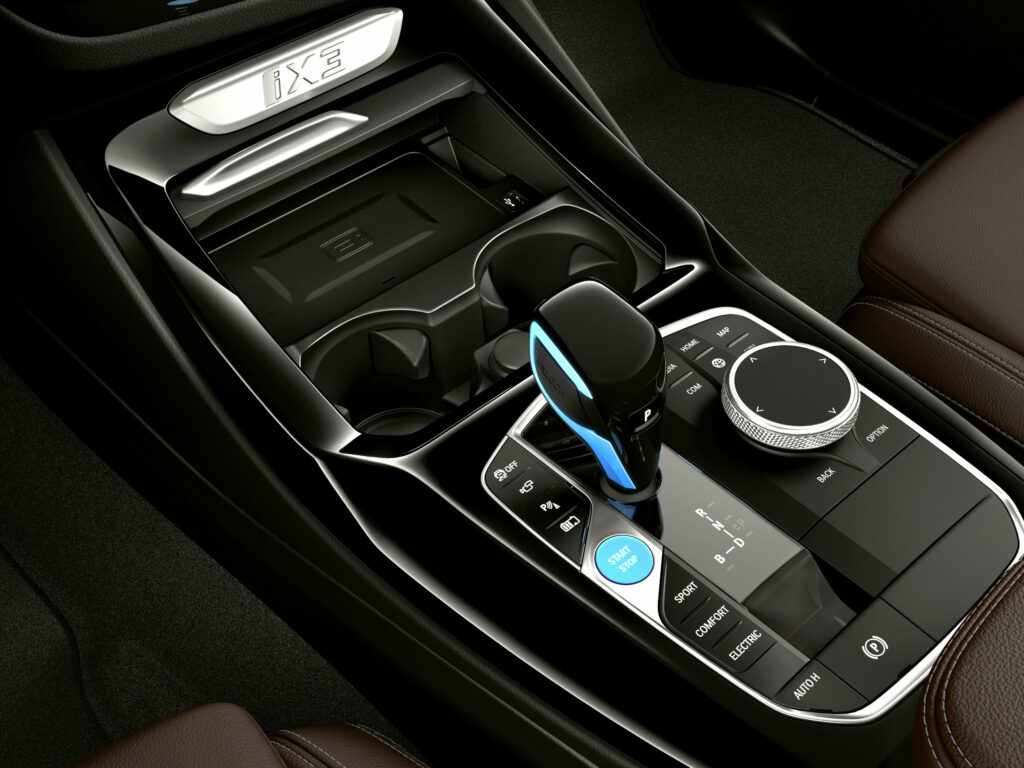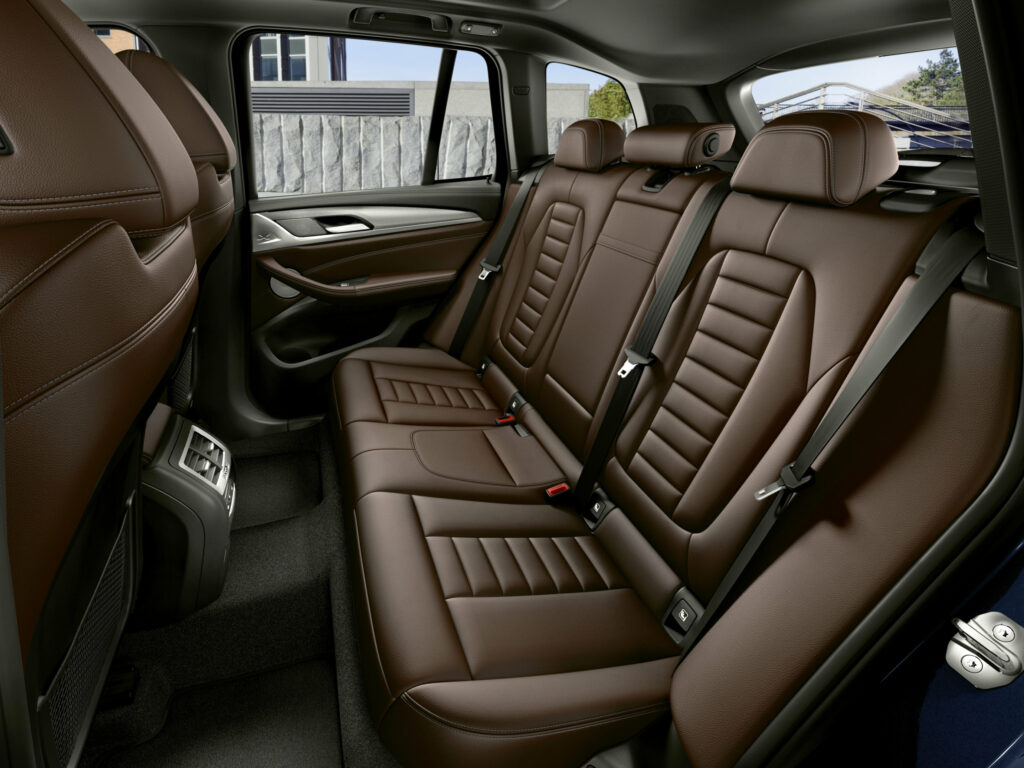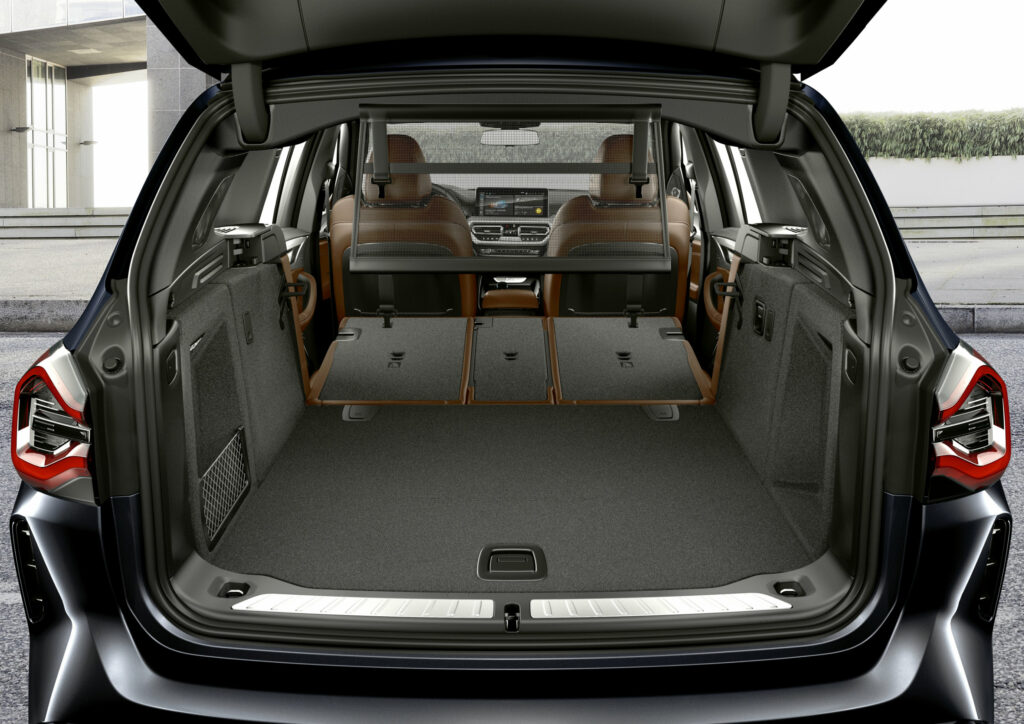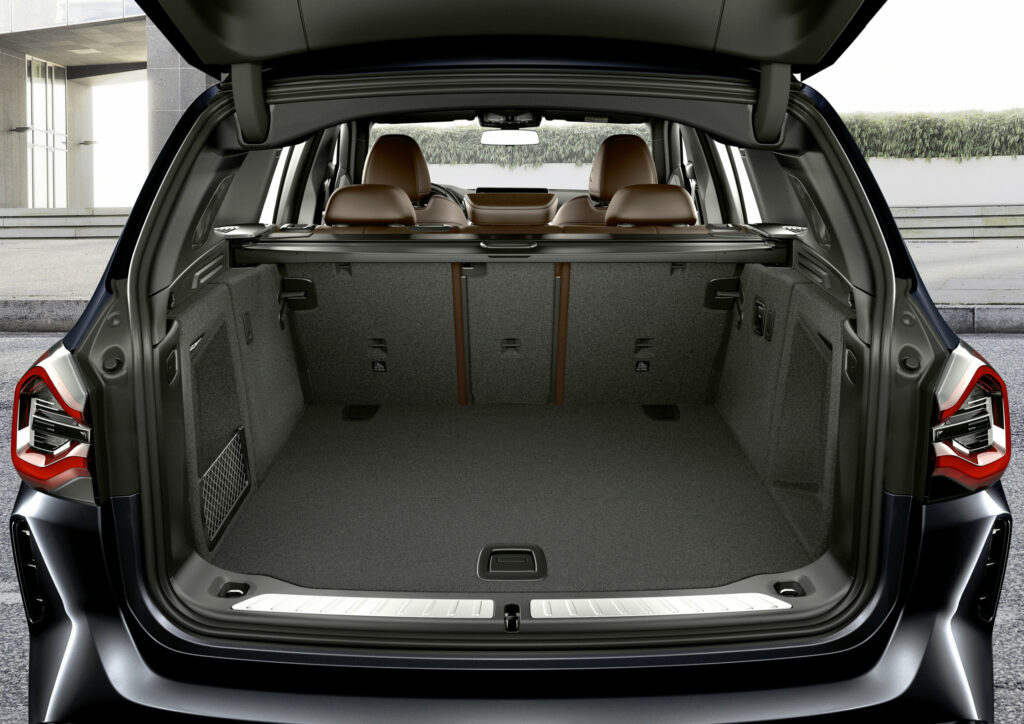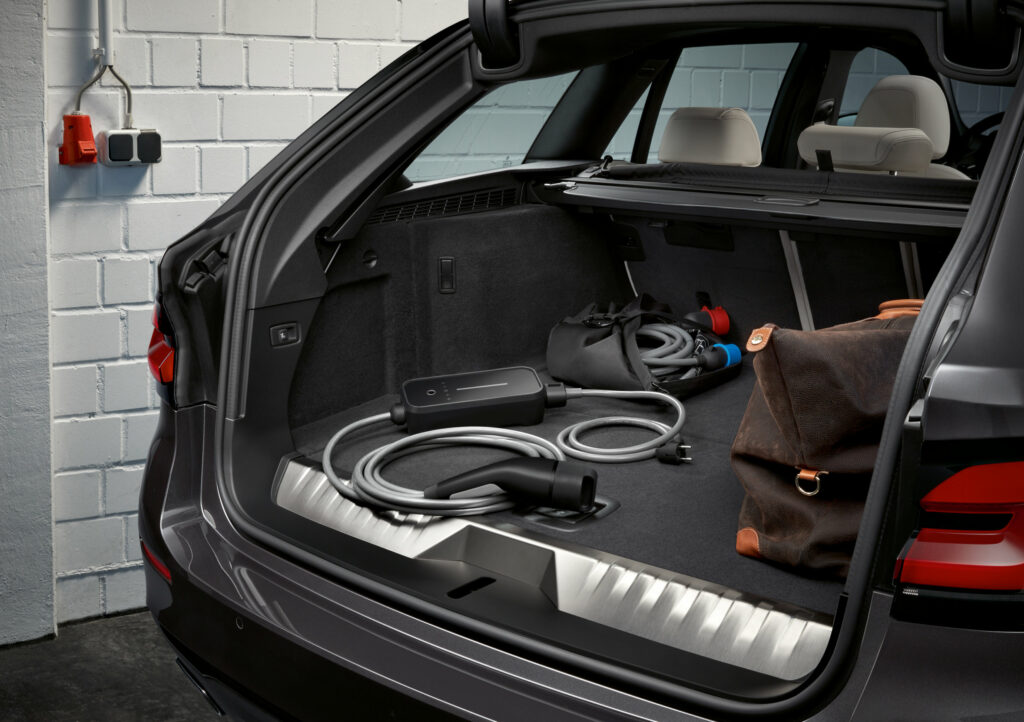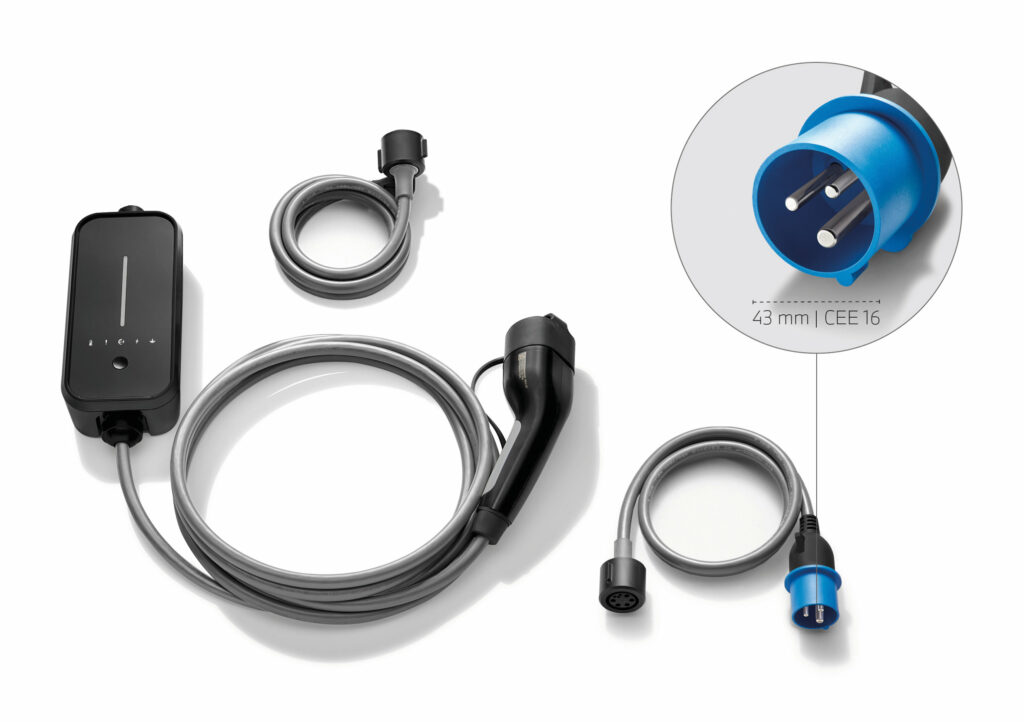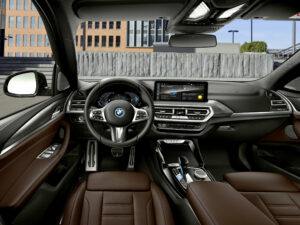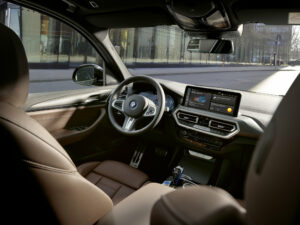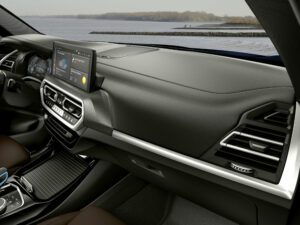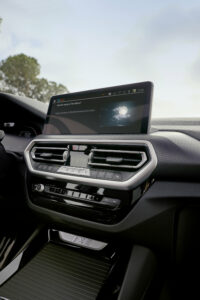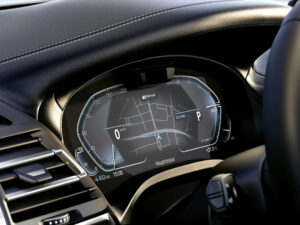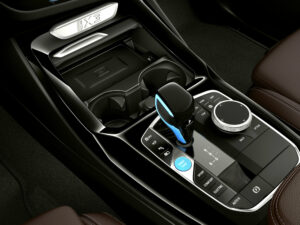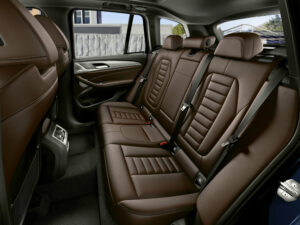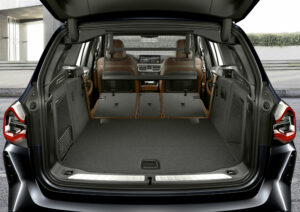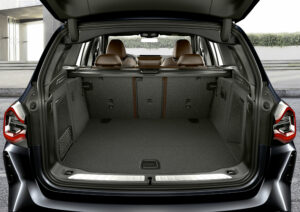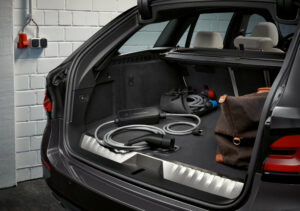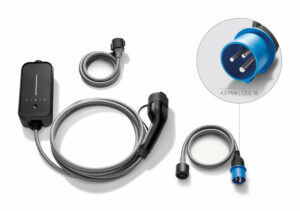BMW iX3
The BMW iX3 2020 electric crossover is equipped with a 210 kW motor. Thanks to this, the electric car accelerates to the first “hundred” in 6.8 seconds. The top speed of the BMW iX3 2020 is 180 km/h, depending on the quality of the road surface.
Without additional charging the electric crossover can travel about 460 km on the WLTP cycle. With the NEDCP cycle, the range increases to 520 km. At the same time, the battery, which is integrated directly under the floor surface, can be charged using “fast” charging with a capacity of up to 150 kW. In this case, the battery can be charged to 80% in just half an hour. If you add another 10 minutes to the charging time, the range can be increased to 100 km.
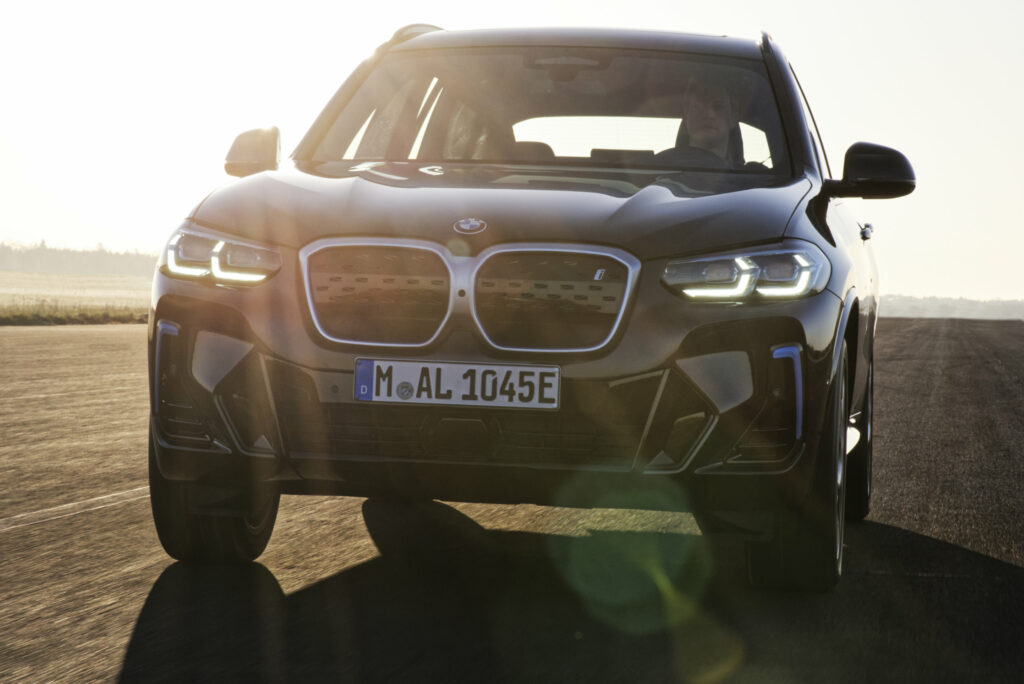
The developers installed an electric motor in the rear of the crossover. During the launch it drives the rear axle of the car, which is usual for the fans of the Bavarian brand. Therefore, potential buyers should have no problems with driving the BMW iX3 2020.
The manufacturer will offer the electric crossover with optional Inspiring and Impressive kit. The information system will also support synchronization with BMW Live Cockpit Professional and BMW Intelligent Personal Assistant cloud services, which will simplify the storage of personal data.
Like many modern cars, the BMW iX3 2020 will have the ability to connect electronic handheld gadgets running on iOS and Android platforms. This will not only make it possible to use the functionality of smartphones and tablets, but also to free your hands while driving the car and talking on the phone at the same time, which will have a positive impact on the safety of the driver and passengers.
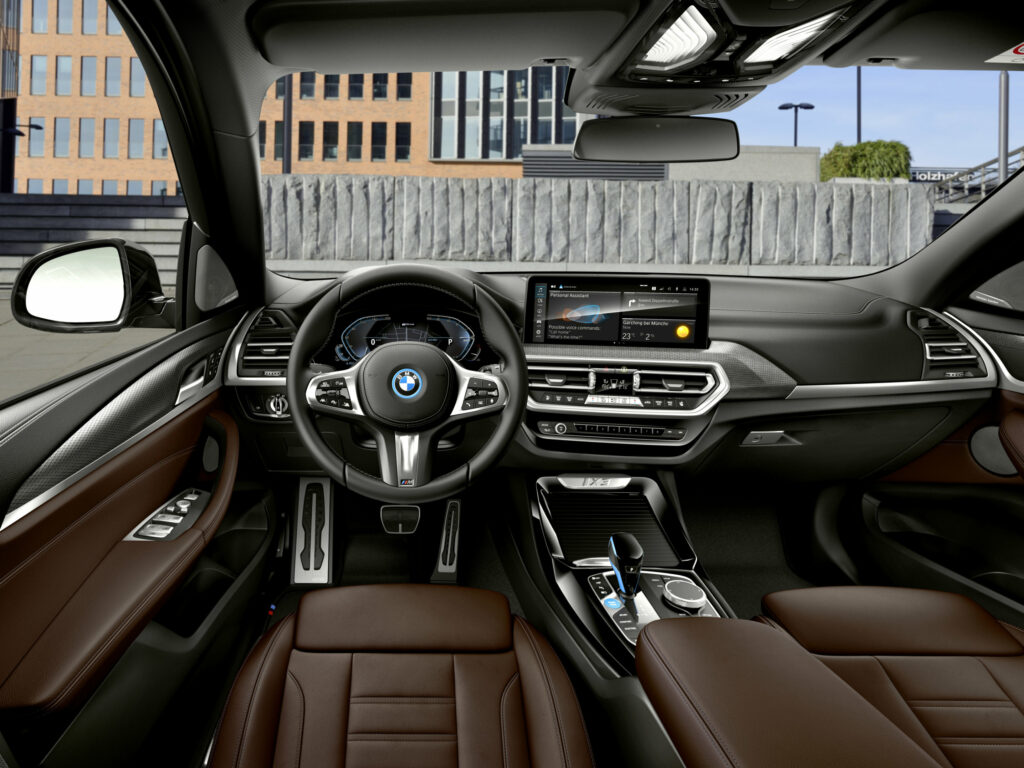
| Performance | |
| Acceleration 0 – 100 km/h | 6.8 sec |
| Top Speed | 180 km/h |
| Electric Range | 385 km |
| Total Power | 210 kW (286 PS) |
| Total Torque | 400 Nm |
| Drive | Rear |
| Battery and Charging | |
| Battery Capacity | 80.0 kWh |
| Battery Useable | 74.0 kWh |
| Europe | |
| Charge Port | Type 2 |
| Port Location | Right Side – Rear |
| Charge Power | 11 kW AC |
| Charge Time (0->385 km) | 8 hours |
| Charge Speed | 49 km/h |
| Fastcharge Port | CCS |
| FC Port Location | Right Side – Rear |
| Fastcharge Power (max) | 155 kW DC |
| Fastcharge Time (39->308 km) | 31 min |
| Fastcharge Speed | 520 km/h |
| Energy Consumption | |
| EVDB Real Range | |
| Range | 385 km |
| Vehicle Consumption | 192 Wh/km |
| CO2 Emissions | 0 g/km |
| Vehicle Fuel Equivalent | 2.2 l/100km |
| WLTP Ratings (TEL) | |
| Range | 461 km |
| Rated Consumption | 185 Wh/km |
| Vehicle Consumption | 161 Wh/km |
| CO2 Emissions | 0 g/km |
| Rated Fuel Equivalent | 2.1 l/100km |
| Vehicle Fuel Equivalent | 1.8 l/100km |
| WLTP Ratings (TEH) | |
| Range | 453 km |
| Rated Consumption | 195 Wh/km |
| Vehicle Consumption | 163 Wh/km |
| CO2 Emissions | 0 g/km |
| Rated Fuel Equivalent | 2.2 l/100km |
| Vehicle Fuel Equivalent | 1.8 l/100km |
| TEL = Test Energy Low | TEH = Test Energy High | |
| Rated = official figures as published by manufacturer. Rated consumption and fuel equivalency figures include charging losses. | |
| Vehicle = calculated battery energy consumption used by the vehicle for propulsion and on-board systems. | |
| Real Energy Consumption between 132 – 269 Wh/km | |
| City – Cold Weather | 192 Wh/km |
| Highway – Cold Weather | 269 Wh/km |
| Combined – Cold Weather | 228 Wh/km |
| City – Mild Weather | 132 Wh/km |
| Highway – Mild Weather | 211 Wh/km |
| Combined – Mild Weather | 168 Wh/km |
|
Energy use for each trip will vary considerably depending on the driver and the conditions. Therefore, we have provided a range of estimates which can be useful in developing an understanding of the potential benefits of this technology. |
|
| Dimensions and Weight | |
| Length | 4734 mm |
| Width | 1891 mm |
| Width with mirrors | 2138 mm |
| Height | 1668 mm |
| Wheelbase | 2864 mm |
| Weight Unladen (EU) | 2260 kg |
| Gross Vehicle Weight (GVWR) | 2725 kg |
| Max. Payload | 540 kg |
| Cargo Volume | 510 L |
| Cargo Volume Max | 1560 L |
| Cargo Volume Frunk | 0 L |
| Roof Load | 100 kg |
| Tow Hitch Possible | Yes |
| Towing Weight Unbraked | 750 kg |
| Towing Weight Braked | 750 kg |
| Vertical Load Max | 75 kg |
| Miscellaneous | |
| Seats | 5 people |
| Isofix | Yes, 2 seats |
| Turning Circle | 12.1 m |
| Platform | BMW CLAR |
| Car Body | SUV |
| Segment | JD – Large |
| Roof Rails | Yes |
| EV Dedicated Platform | No |
Home and Destination Charging (0 -> 100%)
A public charging station is required to use the highest possible charging rate. The EVSE/charging station’s charging capacity affects how long it takes to fully charge the battery. The table below shows all possible options for fully charging the BMW i3s.
In Europe, plugging an electric car into an outlet is often as easy as plugging it into a household outlet, but there are differences from country to country. The table below shows the different ways to charge the BMW i3s, but in some countries some chargers may not be available.
Type 2 (Mennekes – IEC 62196)
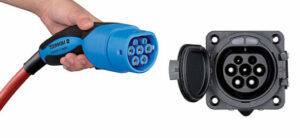
| Charging Point | Max. Power | Power | Time | Rate |
| Wall Plug (2.3 kW) | 230V / 1x10A | 2.3 kW | 38 hours | 10 km/h |
| 1-phase 16A (3.7 kW) | 230V / 1x16A | 3.7 kW | 23h45m | 16 km/h |
| 1-phase 32A (7.4 kW) | 230V / 1x32A | 7.4 kW | 11h45m | 33 km/h |
| 3-phase 16A (11 kW) | 400V / 3x16A | 11 kW | 8 hours | 48 km/h |
| 3-phase 32A (22 kW) | 400V / 3x16A | 11 kW | 8 hours | 48 km/h |
Fast Charging (10 -> 80%)
If you want to enjoy driving an electric car, one of the most important features to consider is the number of miles per hour the car can travel while charged. This is called the “range” of the car. All electric cars have a certain range, even if they are 100% charged. This is because they do not have an internal combustion engine to lean on if you need to drive a long distance.
Max. Power: The maximum power provided by the charging point
Avg. Power: The average power provided by the charging point during a session of 10% to 80%.
Time: the time it takes to charge from 10% to 80%
Speed: the average charging rate during the session of 10% to 80%
Combined Charging System (CCS Combo 2)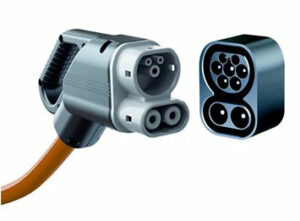
| Charging Point | Max. Power | Avg. Power | Time | Rate |
| CCS (50 kW DC) | 50 kW | 45 kW | 73 min | 220 km/h |
| CCS (100 kW DC) | 100 kW | 80 kW | 41 min | 390 km/h |
| CCS (150 kW DC) | 150 kW | 100 kW | 33 min | 490 km/h |
| Brand | BMW |
| Model | iX3 |
| Body Style | SUV |
| Car Engine | Electric |
| Motor power | 210 |
| Maximum Torque, Nm | 400 |
| Battery Energy, kWh | 80.0 |
| Power reserve (NEDC/EPA/WLTP), km | - / - / 560 |
| Level Charging (230/400/DC), hours | - / 8 / 0.31 |
| Electrical Acceleration, 0-100 km/h (0-62.1 mph) in sec | 6.8 |
| Top Speed, km/h | 180 |
